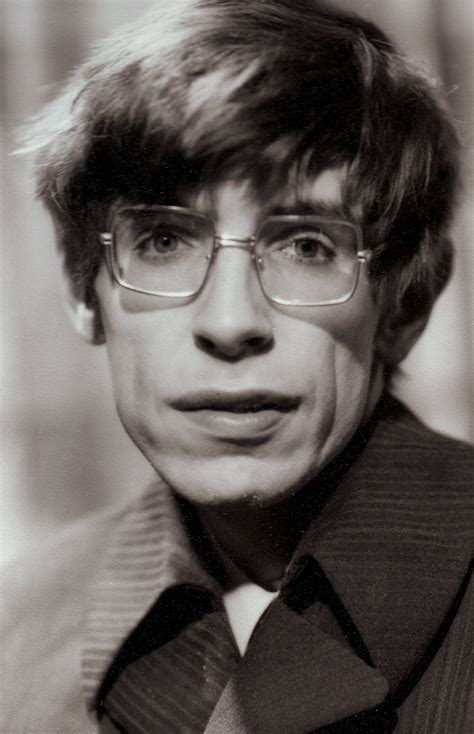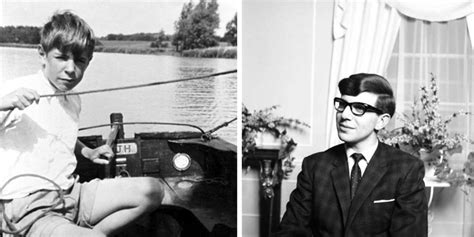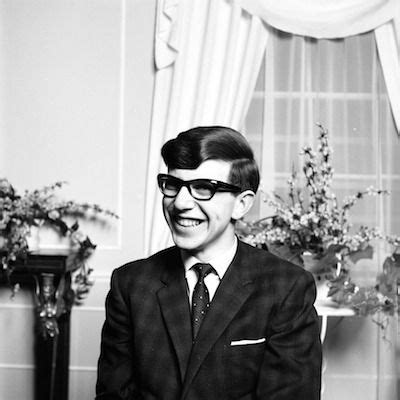At the tender age of 21, Stephen Hawking, a young and ambitious student, was diagnosed with a motor neuron disease, amyotrophic lateral sclerosis (ALS). This life-altering event would not only shape his perspective on life but also fuel his passion for cosmology and theoretical physics. Despite the daunting prognosis, Hawking's insatiable curiosity and determination propelled him to pursue his academic endeavors with unwavering dedication. As he delved deeper into the mysteries of the universe, his groundbreaking work would eventually redefine our understanding of black holes, the origin of the universe, and the intricacies of space-time.
Early Life and Education

Stephen Hawking was born on January 8, 1942, in Oxford, England, to a family of intellectuals. His parents, Frank and Isobel Hawking, were both academics, and their influence played a significant role in shaping Stephen’s early interests in science and mathematics. Hawking’s innate curiosity and passion for learning led him to attend St. Albans School, where he excelled in his studies, particularly in mathematics and physics. His academic prowess earned him a scholarship to the University of Oxford, where he studied physics and graduated with a first-class honors degree in 1962.
Diagnosis and Resilience
In 1963, at the age of 21, Hawking was diagnosed with ALS, a debilitating disease that gradually paralyzes the muscles, leading to loss of motor control. The prognosis was grim, with doctors predicting that he would not survive more than two years. However, Hawking’s resilience and determination in the face of adversity inspired him to pursue his graduate studies at the University of Cambridge. Despite the physical challenges, he continued to work tirelessly, often relying on his friends and family for support. His thesis, “Properties of Expanding Universes,” laid the foundation for his future work on black holes and the origin of the universe.
| Year | Event | Significance |
|---|---|---|
| 1962 | Graduated from University of Oxford | First-class honors degree in physics |
| 1963 | Diagnosed with ALS | Prognosis of two years to live |
| 1965 | Completed PhD thesis | Laid foundation for work on black holes and origin of universe |

Theoretical Breakthroughs

Hawking’s work on black holes, in collaboration with Roger Penrose, led to a fundamental understanding of these cosmic phenomena. His theory, known as Hawking radiation, proposed that black holes emit radiation due to quantum effects near the event horizon. This groundbreaking idea challenged traditional views of black holes as eternal objects and introduced the concept of black hole evaporation. Hawking’s work also explored the origin of the universe, proposing the no-boundary proposal, which suggests that the universe had no boundaries in the beginning.
Cosmological Implications
Hawking’s theories have far-reaching implications for our understanding of the universe. His work on black holes and the origin of the universe has inspired new areas of research, including cosmology, gravitational physics, and quantum mechanics. The no-boundary proposal, in particular, has led to a deeper understanding of the universe’s evolution and the role of quantum gravity in the early universe. Hawking’s ideas have also sparked intense debate and discussion among scientists, philosophers, and the general public, cementing his position as a leading figure in modern cosmology.
Key Points
- Stephen Hawking was diagnosed with ALS at the age of 21, but continued to pursue his academic endeavors with determination and passion.
- Hawking's work on black holes and the origin of the universe has revolutionized our understanding of cosmology and theoretical physics.
- The no-boundary proposal, introduced by Hawking, suggests that the universe had no boundaries in the beginning, challenging traditional views of the universe's evolution.
- Hawking's theories have far-reaching implications for our understanding of the universe, inspiring new areas of research and sparking intense debate among scientists and philosophers.
- Despite the physical challenges posed by ALS, Hawking's resilience and determination have inspired generations of scientists, philosophers, and the general public.
Legacy and Impact
Stephen Hawking’s legacy extends far beyond his scientific contributions. His courage and resilience in the face of adversity have inspired countless individuals around the world. His ability to communicate complex ideas in an accessible and engaging manner has made him a beloved figure in popular culture. Hawking’s books, including “A Brief History of Time” and “The Universe in a Nutshell,” have become bestsellers, introducing millions of readers to the wonders of cosmology and theoretical physics.
Popular Culture and Outreach
Hawking’s impact on popular culture is evident in his numerous appearances in films, television shows, and documentaries. His iconic voice and wit have made him a sought-after guest on talk shows and interviews. Hawking’s commitment to outreach and education has led to the development of various initiatives, including the Stephen Hawking Foundation, which supports research and education in cosmology and theoretical physics.
What was Stephen Hawking's most significant contribution to cosmology?
+Hawking's theory of Hawking radiation, which proposes that black holes emit radiation due to quantum effects near the event horizon, revolutionized our understanding of black holes and the origin of the universe.
How did Hawking's diagnosis with ALS affect his career and personal life?
+Hawking's diagnosis with ALS at the age of 21 led to a significant change in his career and personal life. Despite the physical challenges, he continued to pursue his academic endeavors with determination and passion, inspiring countless individuals around the world with his courage and resilience.
What is the significance of Hawking's no-boundary proposal?
+The no-boundary proposal, introduced by Hawking, suggests that the universe had no boundaries in the beginning, challenging traditional views of the universe's evolution. This theory has far-reaching implications for our understanding of the universe and has inspired new areas of research in cosmology and theoretical physics.
As we reflect on the life and work of Stephen Hawking, we are reminded of the power of human resilience, determination, and passion. Despite the physical challenges posed by ALS, Hawking’s unwavering dedication to his research and his ability to communicate complex ideas in an accessible manner have left an indelible mark on the world of cosmology and theoretical physics. His legacy will continue to inspire generations of scientists, philosophers, and the general public, as we strive to understand the mysteries of the universe and our place within it.



